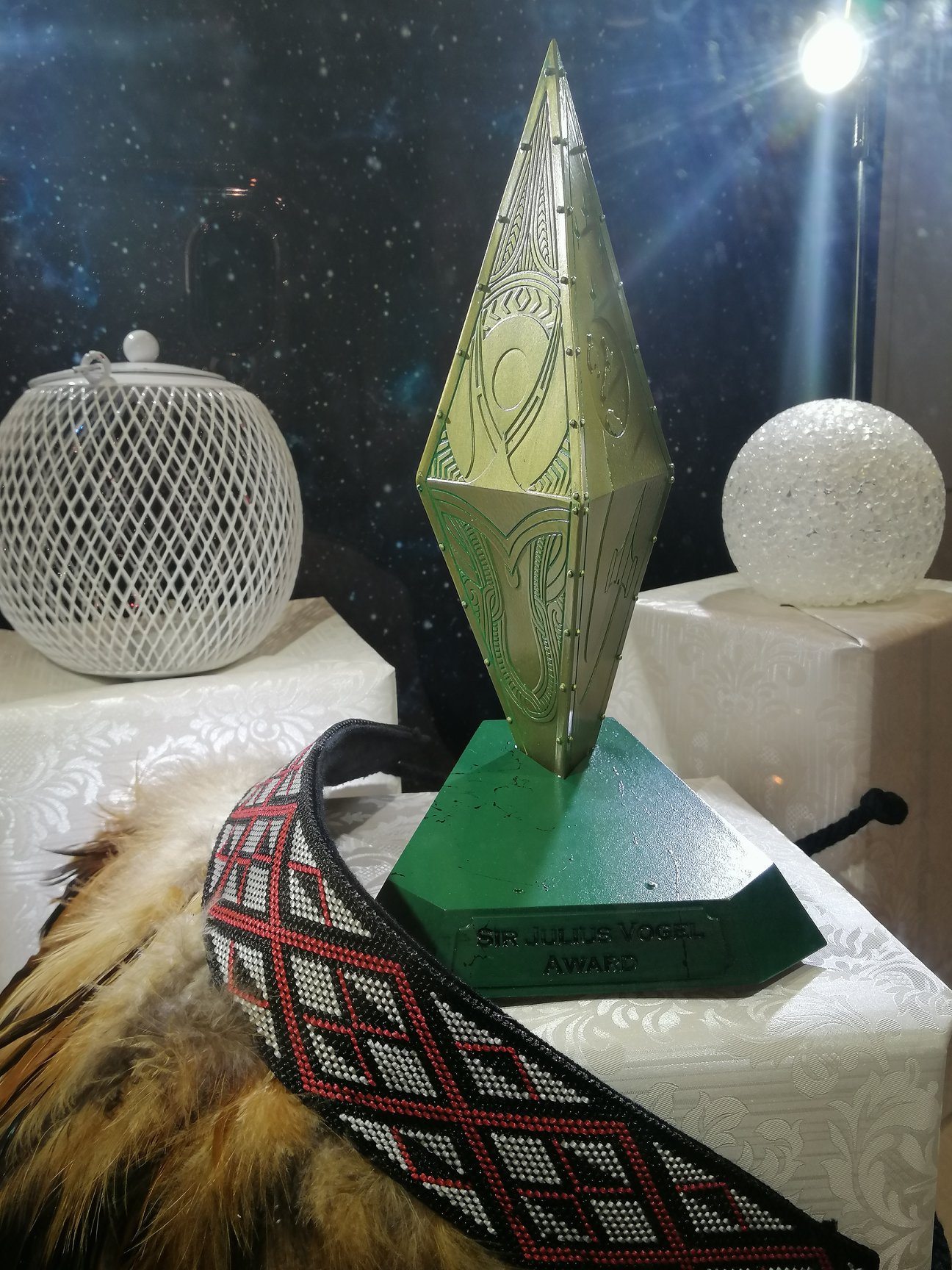[Editor’s Note: This list is no longer available at the original site, however, JJ was able to retrieve a copy and with Steven H Silver’s permission we are hosting it here.]
A tribute to the genre fans and creators we have lost in the past year.
– Compiled by Steven H Silver
Author and poet Nell Anne “Charlee” Jacob (b.1952) died on July 14. Jacob’s works included Soma, The Myth of Falling, and Dark Moods. She won the Stoker Award four times, for her novel Dread in the Beast and for three of her poetry collections, Sineater, Vectors, and Four Elements.
Fan Andi Malala Shechter (b.1953) died on July 15. A science fiction fan and conrunner, she focused a lot of her attention on Bouchercon and other mystery cons, chairing Left Coast Crime in 1997. Shechter was also a book reviewer. She was a longtime companion to Stu Shiffman and the two married shortly before his death in 2014.
The Victims of the Kyoto Animation fire, July 18. 26 people who worked for Kyoto Animation at their production studio were killed when a man set fire to the building. KyoAni made the series Lucky Star, K-On, and Haruhi Suzumiya.
Editor Greg Shoemaker (b.1947) died on July 19. Shoemaker was the founder and editor of The Japanese Film Journal, which he published from 1968 through 1984.
Author and publisher Sam A. Gafford (b.1962) died on July 20. Gafford ran Ulthar Pres, which published chapbooks, including works by William Hope Hodgson. His own writing includes The House of Nodens and the collection The Dreamer in Fire and Other Stories. His non-fiction study William Hope Hodgson: Voices from the Borderlands was nominated for the Stoker Award.
NASA Director of Flight Operations Chris Kraft (b.1924) died on July 22, just after the 50th anniversary of the first moon landing. Kraft was instrumental in the Mercury, Gemini, and Apollo missions and he trained other flight directors. He retired from NASA in 1982.
Swedish fan Christian Rosenfeldt (b.1956) died on July 22. Rosenfeldt was an active fan in publishing fanzines.
Author Robert Mayer (b.1939) died on July 23. Mayer’s genre novels include I, JFK, and the satirical Super-Folks.
Filker Zanda Myrande (b.1955) died on July 24. Myrande’s filk albums included On the Battlements, Blood on Bookwalk, Return to Argenthome – The Rough Cuts, and more.
Game designer Mike Brunton (b.1962) died on July 25. Brunton worked at TSR UK on Imagine and various D&D supplements. He edited White Dwarf in the late 1980s and produced Warhammer works, eventually bringing out Realms of Chaos. Brunton also worked on the Total War videogame franchise.
Australian fan Susan Evans (b.1961) died on July 25. Evans worked on a variety of conventions, including Octacon, the 1982 New Zealand Natcon. She was also a contributor to APAs.
Academic Josh Lukin (b.1968) died on July 25. Lukin was a writing instructor at Temple University and published essays on Philip K. Dick, Kate Wilhem, and Chan Davis, among others.
Fan Martin Hoare (b.1952) died on July 26. Hoare was an inveterate con-runner, serving on more Eastercon committees than any other individual. He co-chaired two Eastercons, Seacon ’84 and Helicon 2, and worked as a Division Head for ConFiction. In 2015, he received the Doc Weir Award. Over the years, Hoare became known for accepting Dave Langford’s Hugo Awards when Langford couldn’t attend Worldcon. He was scheduled to be the Bar Manager for Dublin 2019.
Game designer Richard H. Berg (b.1943) died on July 26. Berg was the recipient of numerous Charles S. Roberts Awards and was inducted into the Hall of Fame in 1987. His games includes SPQR, The Campaign for North Africa, Terrible Swift Sword, Hastings 1066, The War of the Ring, and numerous others.
Author Maggie Secara (b.1950) died on July 27. Secara, also known as The Countess of Southampton, published the Harper Errant trilogy, beginning in 2012 with The Dragon Ring.
Author Barry Hughart (b.1934) died on August 1. Hughart is the World Fantasy Award winning author of Bridge of Birds, as well as its sequels, The Story of the Stone and Eight Skilled Gentlemen. Hughart managed a bookstore for five years in the 1960s.
Fan Matthew R. Sims (b.1966) died on August 4. Sims served as gamemaster at Fencon from the convention’s founding and took joy in introducing new games to fans. He was one of the founders of the Mechwarriors’ Guild and ran FenCon Squares.
Author Toni Morrison (b.1931) died on August 5. Prior to becoming a Nobel Prize winning author, Morrison worked as an editor, occasionally in the science fiction field, working with, among others, Michael Moorcock. Morrison went on to write the novels Beloved, Jazz, Paradise, and The Bluest Eyes. In addition to winning the Nobel, she also won a Pulitzer.
Children’s author Lee Bennett Hopkins (b.1938) died on August 8. His fiction included “Great-Aunt Pippa’s Pepperoni Pizza” and “”The Ninety-Sixth Ghost.” He also edited the anthologies A-Haunting We Will Go, Monsters, Ghoulies, and Creepy Creatures, and Witching Time.
Author J. Neil Schulman (b.1953) died on August 10. Schulman won the Prometheus Award for his novels Alongside Night and The Rainbow Cadenza. His other two novels, Escape from Heaven and The Fractal Man, were also nominees for the award. In addition to writing science fiction, he also wrote non-fiction and “Profile in Silver,” an episode of The Twilight Zone that aired in 1986.
Illustrator Charles Santore (b.1935) died on August 11. Santore’s illustrations appeared in editions of L. Frank Baum’s The Tin Woodman and The Wizard of Oz as well as Lewis Carroll’s Alice’s Adventures Under Ground. He also provided the cover for Daniel Grotta’s J.R.R. Tolkien: Architect of Middle Earth.
Fan Carl Slaughter (b.1958) died in a car accident on August 11. Slaughter’s writing appeared in Tangent Online, File 770, SF Signal and other venues.
Author and editor Robert N. Stephenson (b.1961) died on August 14. Stephenson was the editor of Altair magazine as well as several anthologies. His short story “Rains of la Strange” won the 2011 Aurealis Award.
Game designer Rick Loomis (b.1946) died on August 23 after a battle with cancer. Loomis founded Flying Buffalo and published Nuclear Destruction and later Nuclear War. In 1975, he published the second edition of Tunnels and Trolls and was one of the founders of GAMA in 1978.
Editor Charles M. Collins (b.1935) died on August 26. Collins was one of the founders (in 1970, with Donald M. Grant) of Centaur Books. He edited the anthologies Fright, A Feast of Blood, and A Walk with the Beast. When he wasn’t editing, he worked as a salesman for several publishers.
Author Brad Linaweaver (b.1952) died on August 29. Linaweaver was the author of Moon of Ice, Anarchia, and novelizations for the television shows Sliders and Battlestar Galactica. He was a two-time Prometheus Award Winner and a winner of the Phoenix Award.
Author Melissa C. Michaels (b.1946) died on August 30. Michaels began publishing short fiction in 1979 and begin her first series of novels in 1985, publishing five volumes in the Skyrider series, as well as other novels. She was also active in SFWA, creating the organizations first website and serving as webmaster for the first five years.
Author Terrance Dicks (b.1935) died on August 29. Dicks wrote several episodes of Doctor Who and served as script editor from 1968-74. Dicks also worked on The Avengers, Moonbase 3, and Space: 1999. In addition to his scripts, he also wrote numerous Doctor Who novelizations for Target Books.
Author Katherine MacLean (b.1925) died on September 1. MacLean began publishing in 1949 and had a lengthy career publishing short fiction and some novels. She won the 1972 Nebula Award for her novella “The Missing Man” and was named a SFWA Author Emeritus in 2003. She was the first professional GoH at Wiscon. In 2011, she won the Cordwainer Smith Rediscovery Award.
Editor Lee J. Salem (b.1946) died on September 2. Salem was an editor at Universal Press Syndicate who worked with Gary Larson on The Far Side and with Bill Watterson on Calvin and Hobbes.
Fan Jack Weaver (b.1926) died on September 2. He joined SFSFS in Florida and helped run the art show at Tropicon with Lee Hoffman. Weaver served as the webmaster for FANAC from 1995 until 2016 and continued to contribute code until his death. In 2016, he received an award at FanHistoricon 13.
Author David Hagberg (b.1942) died on September 8. Hagberg wrote the novel Last Come the Children and also wrote the novelization of Terminator 3: The Rise of the Machines and six uncredited Flash Gordon novels. Most of his fiction was techno-thriller, published under a variety of pseudonyms.
Author Hal Colebatch (b.1945) died on September 10. Colebatch published Return of the Heroes, a study of heroic fantasy, and contributed to the J.R.R. Tolkien Encyclopedia. His own science fiction writing focused on stories in Larry Niven’s Man-Kzin Wars series, and he wrote numerous non-genre works.
Fan Laurie Kunkel (b.1966 Laurie Yates) died on September 11. Kunkel helped create the Fantastic Fiction Club of UNLV in 1987 and Neon Galaxies semiprozine. She was also one of the founders of SNAFFU and was active in FAPA and SNAPS.
Author Anne Rivers Siddons (b.1936) died on September 11. Although Siddons is not known as a genre author, her novel The House Next Door does include supernatural elements.
Cosmonaut Sigmund Jähn (b.1937) died on September 12. Jähn became the first German to fly into space when he flew on Soyuz 31 in 1978 and served on the Salyut 6 space station.
Comics historian William Carl “Bill” Schelly (b.1951) died on September 12. Schelly began editing the fanzine Sense of Wonder when he was 15 and eventually published a memoir of the same title outlining what it was like to grow up gay in fandom. He also wrote a biography of Harvey Kurtzman and won an Eisner Award for The Golden Age of Comic Fandom.
Writer Frank Key (b.Paul Byrne, 1959) died on September 13. Key was best known for his nonsensical stories in the Hooting Yard series, which was presented on the radio and also turned into a series of short story collections.
Arizona fan Curtis Stubbs (b.1948) died on September 14. A long-time conrunner and fan, he was involved in the bid to bring the Worldcon to Phoenix in 1978, which resulted in IguanaCon.
Fan Norm Metcalf (b.1937) died on September 21. Metcalf published the fanzines Tightbeam, Idle Hands, New Frontiers, and RPSF as well as The Index of Science Fiction Magazines, 1951-1965. He was active in SAPS, OMPA, FAPA, and other APAs.
Fan Lester H. Cole (b.1926) died on September 26. Cole chaired SFCon, the 1954 Worldcon in San Francisco. He was a member of the Elves, Gnomes and Little Men’s Science Fiction and Chowder Society and published the fanzine Orgasm. In 2017, along with his wife, Esther, Cole was inducted into the First Fandom Hall of Fame.
New Zealand author John Millen “Jack” Lasenby (b.1931) died on September 27. Lasenby wrote children’s fiction, including Because We Were the Travelers, Taur, and The Conjuror.
Author John A. Pitts (b.1965) died on October 3. Pitts began publishing short fiction in 2006 with “There Once Was a Girl from Nantucket (A Fortean Love Story),” co-written with Ken Scholes. He went on to write several short stories on his own and in 2010 began publishing novels under the name J.A. Pitts with Black Blade Blues, the first novel in his series about Sarah Beauhall. From 2015 through 2016, he published The Cleric Journal, a sword-and-sorcery serial which featured daily additions and totaled more than half a million words.
Game designer Keith W. Sears (b.1961) died on October 4. Sears designed SOL: The Omniversal Roleplaying System and related works such as Steeltown. He was a contributor to Alarums and Excursions.
Comics author Tome (b.Philippe Vandevelde, 1957) died on October 5. Tome worked on the comic strip Spirou et Fantasio from 1980 through 1998.
Children’s author Berthe Amoss (b.1925) died on October 6. Her novels Lost Magic, The Great Sea Monster, and The Loup Garou contain genre elements.
Academic Edgar L. Chapman (b.1936) died on October 11. Chapman wrote Classic and Iconoclastic Alternate History Science Fiction, The Road to Castle Mount: The Science Fiction of Robert Silverberg, and The Magic Labyrinth of Philip José Farmer.
Cosmonaut Alexei Leonov (b.1934) died on October 11. On March 15, 1965, he became the first man to perform a spacewalk. He was slated to be the first Soviet to walk on the moon. In addition to being a cosmonaut, Leonov was an artist whose experiences in space influenced and inspired much of his art.
Author Alice “Lisa” Lepovetsky (b.1951) died on October 11. Lepovetsky begane publishing work of genre interest in 1985 with her short story “Along Came a Spider” and her poem “The Old Dragon’s Song.” She continued to publish short fiction and poety and in 2016 released the collection Voices from Empty Rooms.
Author Alison Prince (b.1931) died on October 12. Prince’s genre novels included The Others and Bird Boy. She also wrote short fiction and a non-fiction study of Kenneth Grahame. Prince wrote for the British show Jackanory and appeared on the show as the Storyteller.
Critic Harold Bloom (b.1930) died on October 14. In addition to his crtiticism, Bloom was known for editing a series of critical anthologies that included works by Shelley, Poe, Le Guin, and Lessing. His only novel is The Flight to Lucifer.
Chicago fan Beryl Turner (b.1965) died on October 17. Turner was active in Windycon, Duckon, and was one of the founders of Anime Central.
Author Alex J. Geairns (b.1964) died on October 20. Geairns ran the Cult TV Festival from 1994 to 2007. He published the novel Mindful under the pseudonym alex:g.
Author Michael Blumlein, MD (b.1948) died on October 24. Blumlein wrote the novels The Movement of Mountain, X,Y, and The Healer and his short fiction was collected in four volumes. His works earned him nominations for the World Fantasy Award, the Stoker, and the Tiptree Award.
Fan Barbara A. Wright (b.1947) died on October 28. Wright ran the Chicago TARDIS Masquerade and was active in the International Costumers’ Guild for the Chicagoland chapter.
Comic store owner Cliff Bland died on October 29. Bland was the co-owner of Dragon’s Lair in San Antonio, Texas.
Spacesuit designer Benjamin Franklin Jones III (b.1918) died on November 3. Jones worked as an engineer who oversaw the development of airplane de-icing systems and the design of the Mercury spacesuits.
Author Taku Mayumura (b.1934) died on November 3. Mayumura won the Seiun Award for his novels Shometsu no Korin and Hikishio no toki. His novel Administrator, part of his Shiseikan series, was translated into English in 2004. He got his start when he won the first Kuso-Kagaku Shosetsu Contest.
Author Stephen Dixon (b.1936 died on November 6. Dixon’s genre work included the novel Letters to Kevin and some short stories. Most of his writing was non-genre and he received the Guggenheim Felloship, the O. Henry Award, and the Pushcart Prize.
UK fan Allan Adams died on November 9 or 10. Adams organized two Doctor Who-themed conventions in Peterborough in the mid-1990s.
Bookseller Bruce Robert MacPhee died on November 13. Also known as Spike, MacPhee was the owner of the Science Fantasy bookstore in Harvard Square.
Comics writer Tom Spurgeon (b.1968) died on November 13. Spurgeon edited The Comics Journal from 1994 through 1999. Beginning in 2004 he contributed to The Comics Reporter. He co-wrote Stan Lee and the Rise and Fall of the American Comic Book.
New England fan Ralph Calistro died on November 19. Calistro was an active costumer and part of the Northern Lights Costumers’ Guild. With his partner, Judy Mitchell, he attended various conventions.
Publisher Walter J. Minton (b.1923) died on November 19. Minton served as president and chairman of Putnam. During his tenure, the company published works by James Blish, Philip K. Dick, Robert A. Heinlein, and Frank Herbert as well as The Lord of the Flies.
Artist and author Gahan Wilson (b.1930) died on November 21. Wilson’s cartoon work was epitomized by his mixture of horror, fantasy, and humor. His work appeared in Playboy, The Magazine of Fantasy and Science Fiction, and other magazines. Wilson also wrote short fiction and his movie and book reviews appeared in The Twilight Zone Magazine and Realms of Fantasy. He received a Lifetime Achievement Award from World Fantasy Con in 2005 and designed the World Fantasy Award trophy, a bust of H.P. Lovecraft, which was in use until 2015.
Author Andrew Clements (b.1949) died on November 28. Among the children’s books Clements wrote were the three books in his science fiction trilogy that opened with Things Not Seen.
UK fan Anne Page died in November. Page was active as a conrunner and costumer. She was a guest of honor at the 1990 Eastercon in Liverpool and served on the 1987 Brighton Worldcon committee.
Screenwriter D.C. Fontana (b.1939) died on December 2. Fontana had a lengthy career as a scriptwriter and story editor for various versions of Star Trek, dating back to the original series. She also worked on Buck Rogers in the 25th Century, Babylon 5, The Six Million Dollar Man, War of the Worlds, and numerous other television series, both genre and non-genre.
Author Andrew Weiner (b.1949) died on December 3. Weiner immigrated to Canada from Britain. His first novel was Station Gehenna. Subsequent novels included Getting Near the End and Boulevard des disparus, the latter only published in French. His fiction was nominated for the Aurora and BSFA Award.
Actor Rene Auberjonois (b.1940) died on December 8. Best known within the genre for his portrayal of Odo on Star Trek: The Next Generation, he also appeared on Warehouse 13, The Librarians, provided a voice for Ebony Maw in the animated Avengers Assemble, and various other roles. His first credited film role was a Father John Mulcahy in MASH.
Puppeteer Caroll Spinney (b.1933) died on December 8. Spinney famously played the roles of Big Bird and Oscar the Grouch on Sesame Street from 1969 through 2018, making appearances as both on a variety of other shows and movies, including Supernatural and Night at the Museum: Battle of the Smithsonian.
Book collector Bert Chamberlain died on December 11. Chamberlain was a frequent Worldcon, World Fantasy Con and Nebula Conference attendee who could often be found browsing for rare first editions and getting them signed.
British fan Ian Covell (b.1953) died on December 11. Covell published An Index to DAW Books in 1989 and J.T. McIntosh: Memoir and Bibliography. Beginning in 1994, he also provided British book listings to Locus magazine.
Fan Amy Wenshe (b.Amy Dobratz, 1957) died on December 11. Wenshe was the chair of Windycons 27 and 28 and served on the ISFiC Board. She ran Windycon’s childcare and was involved in multiple Chicago Worldcons
Game designer Bill Olmesdahl (b.1966) died on December 15. Olmesdahl worked for West End Games and TSR. He authored the Star Was Gamemaster Screen, Supernova, and Galaxy Guides for West End’s Star Wars RPG. His other work included Sorcerer’s Crib Sheets, The Unnaturals, and TORG RPG: The High Lord Guide to the Possibility Wars.
Chinese children’s author Da Chen (b.1962) died on December 17. While most of his works are not genre, he did write the novel Wandering Warrior.
Verne scholar Brian Taves (b.1959) died in December. Taves co-edited The Jules Verne Encyclopedia and wrote Hollywood Presents Jules Verne: The Father of Science Fiction on Screen. He also translated many of Verne’s works into English.
Author Elizabeth Spencer (b.1921) died on December 23. Spencer published a handful of science fiction stories among her oeuvre, including “A Long-Forgotten Memory,” “Aspidocelone,” and “First Dark.”
Comics creator Gerry Alanguilan (b.1968) died on December 29. Alanguilan published he graphic novel Elmer. He worked as an inker for both Marvel and DC on titles such as Wolverine, Superman: Birthright, and Fantastic Four.
Author and artist Alasdair Gray (b.1934) died on December 29. Beginning with his novel Lanark, Gray designed his own books, which included Poor Things and A History Maker.
Designer Syd Mead (b.1933) died on December 30. Mead created the look for many films, including Tron, Blade Runner, Aliens, Star Trek: The Motion Picture, 2010, and Mission to Mars. He was nominated for a Saturn Award for Short Circuit.
Publisher Sonny Mehta (b.1942) died on December 30. Mehta oversaw the initial publication of The Hitchhiker’s Guide to the Galaxy and revived the Picador imprint. He published many mainsteam fantasies.
French agent Michelle Lapautre (b.1932) died on January 3. Lapautre represented authors such as Ray Bradbury for French translation.
Author Earl Staggs died on January 3. Primarily a mystery author, some of Staggs’ work, such as Memory of a Murder, included science fictional elements.
Australian author Kurt Bracharz (b.1947) died on January 6. Bracharz began publishing short fiction of genre interest in 1977 with “Vorschalg zur Kopfarbeit” and published seven more stories over the next fourteen years. His story “Venice 2” was translated into English.
Rush drummer Neil Peart (b.1952) died on January 7. In addition to playing for Rush, Peart co-wrote the Clockwork Angels books with Kevin J. Anderson as well as some short stories and poetry.
Author and editor Mike Resnick (b.1942) died on January 9. Resnick is the five-time Hugo Award winning author of Kirinyaga, Santiago, and Ivory. He also edited numerous anthologies of short stories, through which he mentored many newer authors. Most recently, he served as the editor of Galaxy’s Edge magazine. Resnick was also one of the founding members of ISFiC, the organization that runs Windycon in Chicago.
Carol Serling (b.1929) died on January 9. Serling was married to Rod Serling, who created The Twilight Zone. In 1981, she launched The Twilight Zone Magazine and served as editor through 1989. She also licensed Serling’s image and name for television projects and Disney’s Twilight Zone Tower of Terror.
Chicago fan Alan Voecks (b.1968) died on January 10. Voecks was active in conrunning, heading dealers’ rooms for Capricon and also spending time behind dealers’ tables selling t-shirts.
Actor Stan Kirsch (b.1968) died on January 11. Kirsch is best known for his role on television in Highlander, but he also appeared on Grimm and other science fiction and fantasy series and films.
Fan artist and Hugo winner Steve Stiles (b.1943) died on January 11 following a battle with cancer. In addition to his fan art, Stiles also drew comics for Marvel and underground publishers. He was first nominated for the Hugo in 1967 and finally won in 2016.
Academic Paul K. Alkon (b.1935) died on January 13. Alkon wrote the works Science Fiction Before 1900: Imagination Discovers Technology and Transformations of Utopia: Changing Views of he Perfect Society.
Author Christopher Tolkien (b.1924) died on January 15. Not only did Tolkien draw the maps for The Lord of the Rings, but following his father’s death, he edited The Silmarillion as well as Unfinished Tales, the multi-volume The History of Middle Earth, and other works by his father.
Author Charles Alverson (b.1935) died on January 15. Alverson wrote the screenplay and novelization for Jabberwocky and co-wrote the original draft of Brazil with Terry Gilliam.
British fan David Brider (b.1969) died on January 20. Brider was a Doctor Who fan who could frequently be found at British Who conventions.
Comics author Wolfgang J. Fuchs (b.1945) died on January 20. Fuchs co-wrote Comics: Anatomy of a Mass Medium with Reinhold C. Reitberger as well as Comics-Handbuch. He also translated Prince Valiant into German, as well as Garfield, and created original comics.
Comedian Terry Jones (b.1942) died on January 21 after suffering from dementia. Jones was a member of Monty Python and directed their films Monty Python’s Holy Grail and Life of Brian, in which he played various roles as well. Jones also made documentaries on medieval life and the barbarian invasions of Europe, and he wrote the novelization of Douglas Adams’s Starship Titanic.
Artist Barbara Remington (b.1929) died on January 23. Remington painted the covers for the initial Ballantine editions of The Lord of the Rings as well as works by E.R. Eddison.
German YA author Gudrun Pausewang (b.1928) died on January 24. Pausewang published the novels Noch lange denach, Die letzten Kinder von Schewenborn oder…sieht so unsere Zukunft aus?, and Die Wolke, which won the Kurd Lasswitz Prize.
Screenwriter Jack Burns (b.133) died on January 26. Burns wrote for The Muppet Show and was nominated for a Hugo Award for The Muppet Movie. He also wrote an adaptation of Peter Pan and episodes of Darkwing Duck and The Ghost & Mrs. Muir.
Harriet Frank, Jr. (b.Harriet Goldstein, 1917) died on January 28. Best known as the screenwriter of Hud and Norma Rae, Frank wrote the science fiction novella “The Man from Saturn” in 1953.
German author Christoph Meckel (b.1935) died on January 29. Meckel published several short stories bweteen 1975 and 1983, with many of them translated into English and collected in The Fiture on the Boundary Line. He also worked as a graphic artist.
Author Mary Higgins Clark (b.1927) died on January 31. Best known as a suspense novelist, her novels The Anastasia Syndrome, Before I Say Good-Bye, and Two Little Girls in Blue have genre elements.
Translator Jean Migreene (b.1938) died in January. Migreene primarily translated poetry, but also worked on portions of Samuel R. Delany’s Atlantis: Model 1924.
British fan Marge Nuttall died in January. Nuttall was a member of the Liverpool Science Fiction Soiety and was married to fellow fan Stan Nuttall.
Author Paul Barnett (b.1949) died on February 3. Barnett also published as John Grant. In addition to writing the Lone Wolf novels with Joe Dever, and several of his own novels, he co-edited the Encyclopedia of Fantasy with John Clute. He won Hugo Awards for both the Encyclopedia of Fantasy and The Chesley Awards for Science Fiction and Fantasy Art: A Retrospective.
Fan and author Earl Kemp (b.1929) died on February 6. Kemp was active in fandom and chaired Chicon III, the 1961 Worldcon and edited The Proceedings: Chicago III. He won the Hugo Award for Best Fanzine in 1961 for Who Killed Science Fiction. His career as a writer was linked to William Hamling and Greenleaf Classics.
German fan Rolf Bingenheimer (b.1946) died on February 7. Bingenheimer owned the science fiction bookstore Transgalaxis in Fredrichsdorf, Germany, which was founded by his father, Heinz.
German fan Ulrich Bettermann died on February 11. Bettermann reviewed various films, video games, and novels related to science fiction and was a long-time con attendee.
Game designer Daniel Palter (b.1950) died on February 17. Palter was the owner of West End Games and was the publisher of Star Wars: The Role Playing Game, which helped expand the Star Wars brand after the release of Return of the Jedi. He later founded Final Sword Productions, where he was developing games based on the works of David Weber and S.M. Stirling.
Author Charles Portis (b.1933) died on February 17 after suffering from Alzheimer’s disease. Best known for the western True Grit, Portis wrote the science fiction novel Masters of Atlantis in 1985.
German author Ror Wolf (b.Richard Wolf, 1932) died on February 17. Wolf wrote the novel Die Vorzüge der Dunkelheit and also published a short story and poem. Most of his writing was not genre and he also published under the pseudonym Raouk Tranchirer.
Fan Elyse Rosenstein (b.1950) died on February 20. Rosenstein was one of the organizers of the first Star Trek convention, held in New York in 1972. She went on to run Nova Enterprises with her husband, Steve, selling Star Trek related materials. She chaired the 1983 Lunacon and was named an honorary Lunarian.
Comic book artist Nicola Cuti (b.1941) died on Feburayr 21. Cuti co-created E-Man, Moonchild, and Captain Cosmos. His first published story, “Grub,” appeared in Creepy Magazine. In the 1970s, he worked for Charlton.
Author Walter Satherthwait (b.1946) died on February 23. Mostly known for his mysteries, Satherthwait did write two short stories of genre interest, “Territorial Imperative” and “Murder One.”
Calculator Katherine Johnson (b.Creola Katherine Coleman, 1918) died on February 24. Johnson worked as a calculator for NASA from the the 1950s through the 1970s calculating orbits and trajectories for the Mercury, Gemini, Apollo, and space shuttle missions. She was one of the focuses of the book Hidden Figures and subsequent film. NASA has named two facilities in her honor.
Author Clive Cussler (b.1931) died on February 25. Cussler wrote the Dirk Pitt novels and used his money and celebrity to further oceanographic exploration. His best known work, Raise the Titanic! Was turned into a film in 1980.
Game designer Kazuhisa Hashimoto (b.1958) died on February 25. Hashimoto is best known for creating the Konami Code, which allows gamers to acquire extra lives in video games.
Children’s author Betsy Byars (b.1928) died on Feburary 26. Best known for the book Summer of the Swans, her genre works included The Winged Colt of Casa Mia, The Computer Nut, and McMummy.
Scientist Freeman Dyson (b.1923) died on February 28. A theoretical physicist and mathematician, Dyson’s concept of a sphere around a sun inspired numerous science fiction stories and novels.
Fan Frank Lunney (b.1952) died on February 28. Lunney was a best fanzine Hugo nominee in 1970 for editing Beabohema, which he published from 1968 to 1971. He later published the fanzine Syndrome on an occasional schedule.
Fan Kate Hatcher (b.1974) died on March 5. Hatcher was the chair of Spikecon, the combined 2019 NASFIC, Westercon 72, 1632 Minicon and Manticon. Prior to Spikecon, Hatcher was active in Utah fandom and conrunning for many years.
Malaysian fan Nesa Sivagnanam died on March 6. Sivagnanam was active in the Malaysian International Literature Society and attended conventions around the world. She edited 25 Malaysian Short Stories for Silverfish Books.
New York fan Ariel Makepeace Julienne Winterbreuke (b.c.1954) was found dead on March 8. Winterbreuke, who was also known as Abby, I Abra Cinii, and Ariel Cinii, was a contributor to APA-NYU, a filker, artist, and performer. She wrote the Touching Land’s Dance trilogy and was one of the first trans people in fandom. She once appeared on the $10,000 Pyramid, partnered with William Shatner.
Comic illustrator Allen Bellman (b.1924) died on March 9. Bellman began working for Timely Comics in 1942 and began working on early issues of Captain America and Human Torch. He stopped working on comics in 1953.
Georgian author Giwi Margwelaschwili (b.1927) died on March 13. Margwelaschwili was a philosopher and authors whose only work of genre interest was the novel Officer Pembry.
Belgian illustrator René Follet (b.1931) died on March 14. Follet’s first comic, an issue of Treasure Island, was published when he was 14. He went on to work on both Tintin and Spirou, making a career out of one-shot comics and short runs.
Netherlands fan Jan Veldhoen (b.1939) died on March 20. Veldhoen served as treasurer for the NCSF (Nederlands Contactcentrum voor Science Fiction) and for the King Kong Award/Paul Harland Prize.
Astronaut Al Worden (b.1932) died on March 18. Worden was the command module pilot on Apollo 15. On the return to earth, Worden performed the first deep space EVA. Worden detailed his experiences in the book Falling to Earth.
Comics writer and illustrator Albert Uderzo (b.1927) died on March 24. Uderzo was the co-founder and illustrator of the Astérix sieres. He also drew the comic Oumpa-pah.
Fan Dan Goodman died on March 26. Goodman was a St. Paul fan who was active in MNStf. He edited issues of Einblatt and was later a member of LASFS and FiSTFA.
Fan William Levy (b.1955) died on March 26 from an heart attack. Levy was active in a variety of areas, including work as an artist, writer, cartoonist, and game designer. In addition to his cartooning, Levy created the role-playing game Deep Sleep.
Game designer Brian J. Blume (b.1950) died on March 27 of Lewy Body Dementia and Parkinson’s disease. Blume designed the game Boot Hill and wrote the AD&D Rogues Gallery.
Artist and author Tomie dePaola (b.1934) died on March 30, a week after suffering from a fall. DePaola was the author and illustrator of the Strega Nona series as well as numerous other books. DePaola won the Caldecott Medal and the Newbery Medal.
Gamer Paul Cardwell, Jr. (b.c.1934) died on March 31. Cardwell served as the Chair of the Committee for the Advancement of Role-Playing Games and wrote articles in which he defended RPGs from hostile media coverage. He was a contributor to Alarums and Excursions.
British fan Brian Varley died on March 31 from COVID-19 complications. He had been attending conventions since Medcon in 1953 and wrote a column under the name Machiavarley that appeared in Ethel Lindsay’s fanzines.
Argentine comic book artist Juan Giménez (b.1943) died from COVID-19 complications on April 2. Giménez was a co-creator of The Metabarons and The Fourth Power.
Michigan fan Tom Barber (b.1949) died on April 4 from complications from COVID-19. Barber was active in the Dorsai Irregulars. He was active as a filker and chaired ConClave 1 and chaired or co-chaired several subsequent ConClaves. He chaired the 1986 ConFusion and was a GoH at the con in 2001.
Chinese comic book artist Rao Pingru (b.1922) died on April 4. Rao wrote and drew the comic Our Story following the death of his wife.
Bay area fan Tony Cratz (b.1955) died on April 5. Cratz was the Support Services Division head for ConJose and worked on other Bay area conventions as well, although he had backed away from fandom in recent years.
British artist Tim White (b.1952) died on April 5. White began painting book covers in 1974 with Arthur C. Clarke’s The Other Side of the Sky and went on to paint numerous other covers. His art was collected in The Science Fiction and Fantasy World of Tim White as well as later collections.
Fan JoAnn Wood died on April 5. Wood was the founder of the Connecticut Valley SF Society and an early member of NESFA. She was on the bid committee for 7 in ’77 and Hawaii in 1981. Her husband, Ed Wood, was one of the founders of Advent:Publishers.
Fan Al Fitzpatrick (b.) died on April 6 from COVID-complicated pneumonia. A native of England, Fitzpatrick was involved with Australian fandom and later MnStf.
Children’s author Jean Little (b.1932) died on April 6. Although Little wrote numerous books and stories, only a couple of them, “Without Beth” and Once Upon a Golden Apple are of genre interest.
Australian fan and bookseller Merv Binns (b.1924) died on April 7 following a lengthy illness. Binns was one of the founders of the Melbourne Science Fiction Group in 1952 and was one of the group’s driving forces. In 1971, he founded Space Age Books, which remained open until 1985. He published Australian Science Fiction News. Binns won the Big Heart Award in 2010.
Mad Magazine artist Mort Drucker (b.1929) died on April 8. Drucker drew for Mad for more than five decades, specializing in satires of films and television. He held the longest continuous tenure of any artist for the magazine.
Fan John Sardegna died in early April from complications from COVID-19 and pneumonia. Sardegna was a comic book fan and a frequent participant in the pro/fan trivia contest at San Diego Comic Con International.
Editor Keith Ferrell (b.1953) died on April 11. Ferrell wrote the biography H.G. Wells: Citizen of the Future and later became the Editor-in-Chief of OMNI magazine.
Boston fan Stacy Mandell (b.) died on April 12. Mandell became active in fandom and con-running at Stony Brook in 1977. She served as the president of the Science Fiction Forum and ran the soft-sculpture business Sleeping Dragon. She ran the Masquerade Green Room at Arisia as well.
Los Angeles fan Ken Rowand (b.1948) died on April 12. Rowand was diagnosed with kidney cancer late last year. Rowand interviewed Ralph McQuarrie for the zine Bantha Tracks. Rowand was a comics fan as well as a Star Wars fan. He is survived by his wife, Marta Strohl.
Brazilian author Rubem Fonseca (b.1925) died on April 15. Fonseca is the author of Corações solitários, which was translated into English as Lonelyhearts. Most of his works were non-genre and he tended toward being a recluse.
Fan D.J. Rowe (b.1937) died on April 19. Rowe’s appreciation of Michael Moorcock led to him running Nomads of the Time Stream, the first Moorcock fan club. Rowe published many articles in the club’s zine, The Time Centre Times.
Fan Hugh Casey (b.1964) died on April 21. Casey served as the President of PSFS, chaired two Philcons, and also served as programming chair for the convention. He was a guest of honor at 5 Pi-Con in 2010.
Chicago fan Shelagh Nikkel (b.1966) died on April 24 after a long battle with cancer. Nikkel began coordinating massages at Chicago area conventions when she was still in massage school, including at Chicagon 2000, and continued after she set up her own practice.
Author and editor Joseph S. Pulver, Sr. (b.1955) died on April 24. Pulver edited the anthologies The Grimscribe’s Puppets and Cassilda’s Songs: Tales Inspired by Robert W. Chambers’ King in Yellow Mythos.
Fan Reed Andrus died on April 25. His fanzines included Laughing Osiris and The Bull of the Seven Battles. He was a member of the National Fan Federation, contributing to Yesterday and Today.
Rare book librarian George McWhorter (b.1931) died on April 25. McWhorter developed and curated the Edgar Rice Burroughs Memorial Collection at the University of Louisville and published the Burroughs Bulletin and the Gridley Wave.
Swedish bookstore manager Michael Svensson died in the spring. Svensson worked at SF-Bokhandeln. He was also a conrunner and fanzine editor and in 1986 won the Alvar Appeltoff Memorial Award.
Author Wally K. Daly (b.1940) died on April 30. Daly was primarily a playwright and screenwriter, but when his script “The Ultimate Evil” was cancelled for filming on Doctor Who, he turned it into a novel, which was later adapted by Big Finish.
Comic book writer Martin Pasko (b.Jan-Claude Rochefort, 1954) died on May 10. Pasko wrote Superman for various media, the script for Batman: Mask of the Phantasm, and Doctor Fate. Other work including Thunfarr the Barbarian, The Tick, and scripts for Buck Rogers in the 25th Century, The Twilight Zone, and Max Headroom.
Comic book writer Frank Bolle (b.1924) died on May 12. Bolle worked on Doctor Solar, Man of the Atom and Detective Comics. Many of his comics were westerns or romance, but he also inked about a dozen stories for Marvel.
D.C. area fan Barry Newton (b.1949) died from cancer on May 12. Barry wrote reviews for SFRevu and was an active con attendee and conrunner in the Washington, DC area.
Chinese author Ye Yonglie (b.1940) died on May 15. Ye began publishing science fiction in 1978 with Xiao Lington Manyou Weilai, and became known as one of the country’s foremost science popularizers. He was most active prior to 2000.
Montreal fan Alice Novo (b.1958) died on May 19. Novo was active in the Montreal Science Fiction and Fantasy Association (MonSFFA) and wrote for the group’s fanzine, WARP. She was also involved in running conventions.
Academic Marshall B. Tymn (b.1937) died on May 24. Tymn was the founder of the Instructors of Science Fiction in Higher Education and published numerous academic works, including A Director of Science Fiction and Fantasy Publishing Houses and Book Dealers, The Teacher’s Guide to Science Fiction, and The Celebration of the Fantastic. In 1990, he received the Pilgrim Award from SFRA.
Academic Colin Manlove (b.1942) died on June 1. Manlove was a literary critic who wrote Modern Fantasy: Five Studies and Science Fiction: Ten Explorations. He wrote several volumes on C.S. Lewis as well as books on Harry Potter.
Screenwriter Bruce Jay Friedman (b.1930) died on June 3. Friedman wrote the film Splash and its sequel as well as the show Sniff. He also wrote the afterlife play Steambath.
Croatian translator Melina Benini (b.1966) died on June 4. Benini receved the SFERA Award six times and multiple Artefakt awards. She translated works by Guy Gavriel Kay, Terry Pratchett, Michael Moorcock, N.K. Jemisin, and Iain M. Banks from English into Croatian.
Comic editor Dennis O’Neill (1939) died on June 11. O’Neill worked on Green Arrow, Green Lantern, and Batman, creating the characters Ra’s al Ghul and Talia al Ghul. He also served as editor-in-chief of DC Comics.
Author Stella Pevsner (b.1921) died on June 11. Pevsner was a children’s author whose works included Sister of the Quints and Is Everyone Moonburned But Me?
Fan and game designer Monica Stephens died on June 18. Stephens worked for Steve Jackson Games in nearly every capacity and helped Jackson make the first Munchkin test set. She was Jackson’s companion for 30 years, attending numerous conventions with him.
Author Carlos Ruiz Zafón (b.1964) died on June 19. Zafón was the author of The Shadow of the Wind.
Author Wendy Cooling (b.1941) died on June 23. Cooling established literacy programs in England and also wrote numerous children’s books in the Quids for Kids series, including Aliens to Earth and Weird and Wonderful.
Comic book artist Joe Sinnott (b.1926) died on June 25. Sinnott worked on various titles for Marvel, including Fantastic Four, The Avengers and Thor. He inked the Amazing Spider-Man newspaper comic.
Artist Milton Glaser (b.1929) died on June 26. Glasser co-founded New York Magazine and created the “I (heart) NY” logo. His genre contribution was to design the logo for DC Comics.
Artist Jim Holloway died on June 28. Holloway worked on interior illustrations for TSR’s Dungeons and Dragons books, and did the cover art for several of their games. He was the original artist for Paranoia and also worked for Pacesetter and Sovereign Press.
Fan Jomil Mulvey (b.1950) died on July 11 from COVID-19. A poet, she was also known as Lady Mare and Lady Elinor de la Paz.











